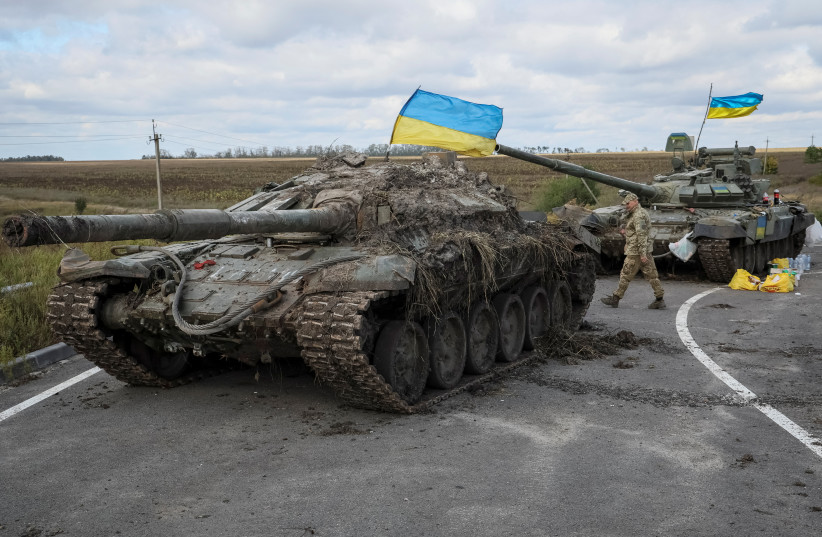Reports that Russian President Vladimir Putin on Wednesday announced a partial military mobilization in Russia don’t come as a surprise. Russia has been trying to fight the war in Ukraine on the cheap, shielding its own citizens from any real consequences, but Ukrainian resistance has been breaking down the Russian units sent to the invasion.
Moscow reportedly has now considered wider mobilization for the war effort. This comes as Russia is talking up “referendums” for areas it has conquered.
What this means is that Moscow wants to solidify gains and pump some new resources into a flagging operation. Moscow had always termed this a “special” operation, not wanting to make it seem like some huge war, but Ukraine has given Russia a real war because Kyiv didn’t fall the way Moscow thought it would, and instead a grinding conflict has resulted. A recent series of Ukrainian counter-offensives has shifted the tempo and put Russia off balance.
Moscow’s desire to fight the war on the cheap is illustrated by its unwillingness to commit most of its armed forces, not using its air force much, and instead sending in mercenaries, fighters from periphery areas like Chechnya and even recruiting prisoners to fight.
Russia additionally relies on separatist regions in Ukraine to help do the fighting and suffering. The whole goal here was to let Moscow go about business as usual. Russia’s President Vladimir Putin recently went to Uzbekistan for the Shanghai Cooperation Organization meeting, where he met other authoritarians.

What does Putin want?
Putin wants to create a multi-polar world order and reduce US influence over the globe. But you can’t do that if you can’t win wars and Russia is losing in Ukraine.
It's unclear if mobilization might mean new offensives by Moscow or merely a way to solidify the gains it already made. It appears it has a desire to have referendums in Ukraine so that Moscow can annex more territory, as it did with Crimea in 2014.
Russia has caused the population of some areas it conquered to flee, leaving behind people that may prefer Moscow’s rule. Some Russian-speaking Ukrainians have often had ties to Moscow and preferred pro-Russian politicians. Russia used these Ukrainians in 2014 to carve out the Donetsk and Luhansk separatist regions.
Crimea, an area that was once part of Russia, was also taken from Ukraine. Moscow’s view is that a swath of Ukraine historically belongs to Russia and that the people there are Russians, not Ukrainians. This is part of a kind of neo-imperialist policy by Moscow.
But like all empires, Russia prefers was on the cheap and divide and conquer strategies. It didn’t want to commit hundreds of thousands of soldiers. Putin has tried to reform the armed forces of Russia over the last two decades; creating what he sees as a new model army. But that army has not performed well in Ukraine.
Russia has traditionally relied on conscripts and masses of men to wage war; overcoming initial failures by brute force. That is how Russia defeated the Nazis and also the Chechens. But 2022 may be different. Moscow doesn’t want to sacrifice people the way it did in the 1940s or 1990s. Ukraine is also backed by the West and is getting better equipment every day, and Russia isn’t able to replace its equipment.
Mobilization could be part of the endgame strategy for Moscow; mobilize and consolidate what gains are left and then pretend it won the war by some kind of brokered peace, possibly a peace brokered by Turkey.
